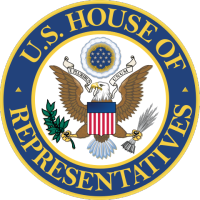In the race for President of the United States, Vice President Kamala Harris (D) faces former President Donald Trump (R). The Virginia ballot also includes two minor candidates—Chase Oliver (L) and Jill Stein (G). Two nonviable candidates and one withdrawn candidate are excluded from consideration.
The United States has a unique system for electing presidents. The citizens of the fifty states and the District of Columbia vote for electors pledged to a particular candidate, and those electors choose the president. Each state has the same number of electors as it has representatives in the two houses of Congress combined. The District of Columbia also has three electors.
Most states and the District of Columbia award all their electors as a “slate” to the candidate who won the most votes in the state or district. Maine and Nebraska allot two of their electors to the statewide winner and divide the rest based on who wins the most votes in each congressional district.
There are 538 electors; a candidate must win an outright majority of at least 270 to win. If no candidate wins an electoral majority, the House of Representatives chooses a president by a ‘majority of the states’ vote. Presidents are elected to four-year terms and may serve up-to two terms.







